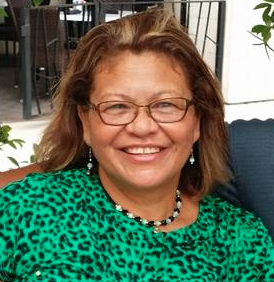When I was 28 years old, I was assigned a new role as the campus leader of a primary school. With all my endless energy, practical research and systemic thinking, I committed countless hours to the day-to-day operations of the school to turn it around. It was safe to say that out of the 5 days of a workweek, I spent 4 days weekly problem solving direct issues. However, I did not mind the time I committed to the role nor the issues that came up, as transformation was taking place.
I did not socialize outside of the school setting with the staff I worked alongside during my earlier years as a school leader. Regardless, I felt that I was focused on the steps needed to move build capacity among my teacher leaders, consistent in my communication and treated individuals with common human decency. It was the latter notion that I soon realized that others did not hold the same values as me.
A custodian came to my office to express her concern of remarks she received for a fellow colleague, who taught children who were very young. At times, the students had incidents with an unexpected bowel movement or digestive issues.
With tears in her eyes, she expressed, "I know it is my job to clean up when a child vomits, has an accident in the classroom...(she paused)...but I do not think it's right for this teacher to declare in front of everyone, including the children, "That this is what I need to do because that is my role to pick up after everyone else's mess." The custodian did not need to say more. I was heartbroken and humiliated for her.
I met with the teacher and had the necessary conversation. She immediately recognized that her words were unprofessional and futile, apologizing for her remarks to everyone involved. The custodian forged ahead with much more confidence, feeling valued with her sense of self-restored. This conversation prompted a shift in the dialogue our colleagues had with each other. I took this and many experiences thereafter with me wherever I went.
Years later, I moved to a secondary campus and became their principal. I was clear in what I expected professionally my colleagues and self, the students we served and from the community where our campus was located. Consequently, I implemented vision and mission exercises that would keep our team focused on mutual goals, objectives and set expectations for our conversations. For fours years, everyone on the campus contributed to the successful graduation of students, reduced behavioral incidents and retained teachers year after year in a safe and nurturing environment.
It has been two years since my departure from that secondary campus. I was reminded of the numerous conversations I had with each individual during my tenure. I received communication from a former custodian earlier this week. She saw a picture of me with a teacher online and expressed in Spanish how much she missed seeing the staff at the school. The teacher replied, "Thank you for teaching me Spanish." I read those words for the first time not knowing what interactions the teacher and custodian had had while we worked together. All three of us have gone our separate ways professionally, yet we distinctly recall how positively we have impacted one another. Next to always encouraging each other to be courageous, the time we shared together has been one of the many reasons we have stay connected personally.
Robin Sharma, author of 'The Saint, The Surfer and The CEO' shared 10 things authentic leaders do:
(1) They are clear, honest and authentic with their words.
(2) They lead from the heart, recognizing the importance between relationships and work.
(3) They work on their character, as their walk is aligned with their core values.
(4) They are courageous, taking the road less traveled and doing, not what is easy, but what is right.
(5) They build teams and create communities, creating environments that foster human linkages and lasting friendships.
(6) They deepen themselves, managing potential limiters and appreciating their strengths.
(7) They are dreamers, spending a lot of time with their eyes closed creating blueprints and fantasies that lead to better products, better services, better workplaces and deeper value.
(8) They care for themselves.
(9) They commit to excellence rather than perfection.
(10) They leave a legacy.
I have learned that leadership - when authentic - belongs to the individuals who make the conscious choice to be a part of a greater purpose. When I saw the teacher recognize our former custodian colleague for her efforts in teaching her Spanish, I smiled. While I see many of the tenets Sharma lists in myself at age 42, I was profoundly reminded that Amalia carries them, too. Her willingness to share her skills, ideas and voice made our conversations more meaningful, establishing mutual respect for one another.

